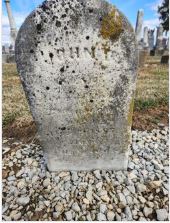
Last week I went to FamilySearch Library in Salt Lake City, Utah with one main goal – to prove that John Duer (Circa 1803 PA-1885 IN) was the son of Thomas Duer (1775 NJ – 1829 OH). I’ll blog next week about researching in the renovated library but for now, this story is just unbelievable!
I have long wanted to prove that I am a descendant of Patriot John Duer (1748 NJ – 1831 OH). I’ve written two analyses on indirect evidence linking Patriot John to his oldest son, Thomas, who died intestate, and Thomas’s son, John, who was of age when his father died and therefore, not named in probate.
Early on in my research, I was advised to check land records and I did. The problem was that some early deeds for Trumbull County, Ohio are missing. Both Patriot John and Thomas lived next to each other from 1809 until Thomas’s untimely death at age 54 in 1829. Since Thomas died before his father he was not named in his will, however, one of Thomas’s daughter’s husbands was named in Patriot John’s will as receiving land. All of the rest of Patriot John’s children were noted in the will. He had one other child who had predeceased him; for that child, the grandson was named as receiving cash.
In Salt Lake City I was looking at volumes written by Henry Baldwin in the mid-1800s. I found the information I needed to prove that Thomas was the son of Patriot John. The books didn’t help, though, by showing Patriot John’s grandson, John, was Thomas’s son.
I asked several AGs and research specialists for ideas. I had looked for records that included Bibles, Presbyterian Church, cemeteries, obits, probate, wills, deeds, tax records, court records, identifying census tic marks, journals for pioneers/circuit riders, genealogy society records, mug books, and contacting people who had online family trees. One AG recommended checking Masonic Lodge records as he noted that many Presbyterian farmers were members.
FamilySearch has New York Masonic records but not Ohio so I reached out to the Public Library of Youngstown, Ohio, and was referred to Warren County Public Library. I sent an email request noting I was looking to prove a relationship through Masonic records.
The following day I received a wonderful reply – no Mason records but someone once left 4 pages of typed research notes on the family in the surname files. The librarian scanned them for me. Those notes were undated, the library had no idea who had left them or when. I had contacted the library for various help over the years and no one had ever mentioned these 4 pages of notes.
I figured the Masonic records were a long shot but I admit, I was initially disappointed when I looked at the notes. I began reviewing the attachments and on page 3, almost fell out of my chair. The individual who had left the information had abstracted deeds. I had seen every deed at FamilySearch.org but one. The one that was not listed in the index was the one that had named the wife of Thomas and all their children, shown above. It neatly sold land that was mentioned in Patriot John’s will to another of Thomas’s children. The husband of that child sold the land to the named son of Thomas.
I had looked page by page at early deed books but stopped at the end of 1832 as that was when the estates were finalized. I used indexes going forward. This one transaction wasn’t indexed. The land was sold in 1832 but not recorded until 1833.
It never dawned on me to go page by page for the following year AFTER the estates were closed. I could have solved this problem years ago if only I hadn’t relied on the index and remembered that deeds are not always recorded when they were made. Lessons learned!












